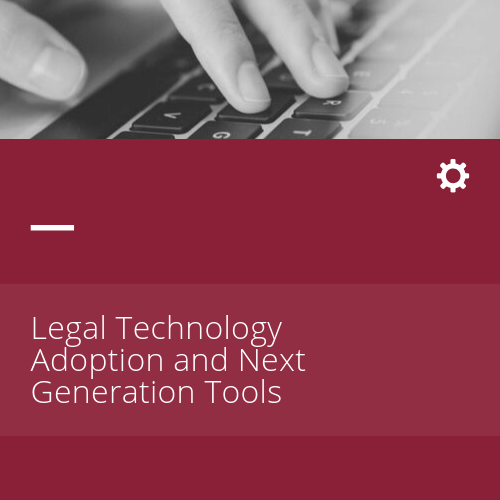Tech Trends: Surprised or Not?
The ABA recently released the TECHREPORT 2021. The analysis was completed based on responses collected since the pandemic. It is one of the first views of how Covid affected, or didn't affect, the practice of law. Suffice it to say, we were surprised. But then again, we weren't.
Usage of the Cloud
Law firms' adoption of cloud-based solutions remained flat. While somewhat surprising, particularly given the move to remote work for many law firms, the reasons remain the same. Cybersecurity issues continue to worry law firms. Perhaps exacerbated by remote work, with more and more people online during the pandemic, concerns remained high over data security. Our next question surrounds efforts to protect their firms' data. Have steps been taken to protect the law firm data? Consistent with previous years, few firms have taken any action.
The most used cloud-based tools include Dropbox, Microsoft (Teams and 365), iCloud, Box, and Evernote. It's interesting that the list does not include any law-specific offerings. Of the respondents, 96% said the reputation of the provider is important.
The decision to use cloud-based software to support clients was not reported as important. Clearly, this is a key benefit, and a feature clients are requesting.
Software Adoption
Ok, this one surprised us. But then again, maybe not. Some categories saw an increase in adoption, including document assembly software. However, the adoption rate of document assembly software is the lowest among available software.
Remote access software declined over the pandemic. If firms moved to cloud-based software, that would explain the decrease. But they did not. One theory is law firms allowed their staff to work in their office, on a streamlined schedule, during the pandemic. Based on my own personal insights in speaking with attorneys, this was very common. For many law firms, the schedule continues, allowing certain staff members to work in the office on specific days.
Software availability versus usage continues to show a gap. While many firms have access, the software itself is not used. This could be a good reminder for law firms to review their software tools and determine which are being used, which aren't, and how to better address the need.
Cloud-hosted software also remained flat. This one surprised us this year. So even during the pandemic, law firms did not report higher adoption of cloud-based software to help them manage their cases and practice while working remotely. This could again be that firms allowed attorneys to work in their offices, implementing social distancing and other protective measures.
Respondents said they liked the accessibility, availability, data back-up, data recovery, and low cost, among other benefits. The biggest concern noted was data confidentiality and data security.
Legal-Specific Software
To summarize, it's more of the same. For specialized practice, docket/calendaring, case/practice management, and conflict checking software, overall availability was flat. Conflict checking software is the highest used, with 67% of respondents using the tool. Specialized practice software was down slightly. All others remained flat, fluctuating only 1 or 2 percentage points.
The bigger issue here is what's beyond these numbers. There remains a fairly sized gap between the adoption and availability of software. Even during the pandemic, where communication with clients, time tracking, invoicing, billing, and the like were all different, firms with case/practice management software didn't report adopting the tool.
The legal industry has long been slow to adopt technology. This is a continuation of that trend. The reason? There are several and they vary based on the individual. Data security continues to be a top issue, although software providers are keenly aware of and focused on providing state-of-the-art security.
Hardware Trends
Laptops are the new most-used hardware. Per the survey, 53% of lawyers said they use a laptop. This is a continuation of a previous trend. A decline in the use of desktops is noted. Other hardware, like tablets, remained flat.
Whether the trend will continue or accelerate will be seen. Depending on firms' decisions to return to the office, work in a hybrid schedule, or offer fully remote options, the continued adoption of laptops will likely continue.
While technology continues to transform industries, the legal industry continues to hold fast, being resistant to change. Concerns over data security and confidentiality are some reasons noted. However, as clients continue to request, even demand, visibility to their cases, law firms will need to rethink their approach. Ultimately, it's about finding the right tools, whether hardware or software, that helps the attorney and the client efficiently resolve legal matters.


